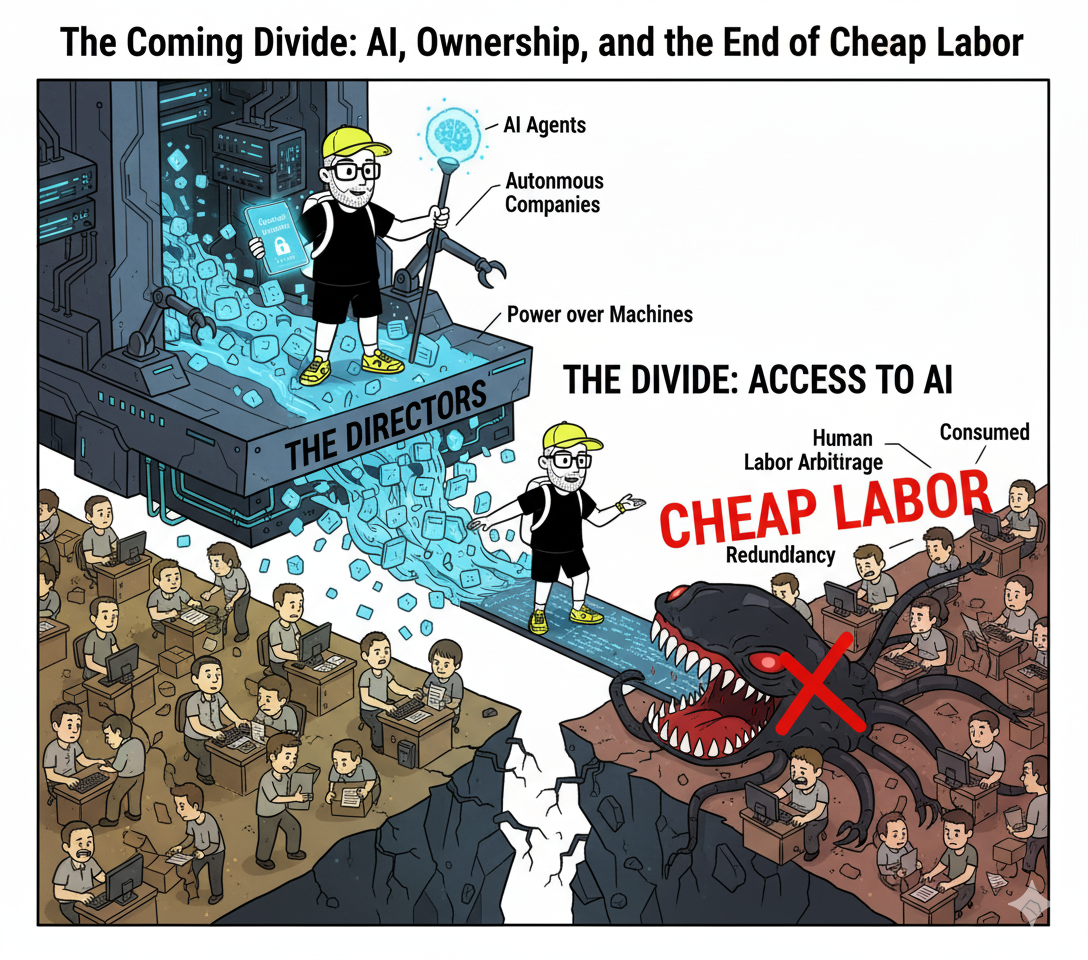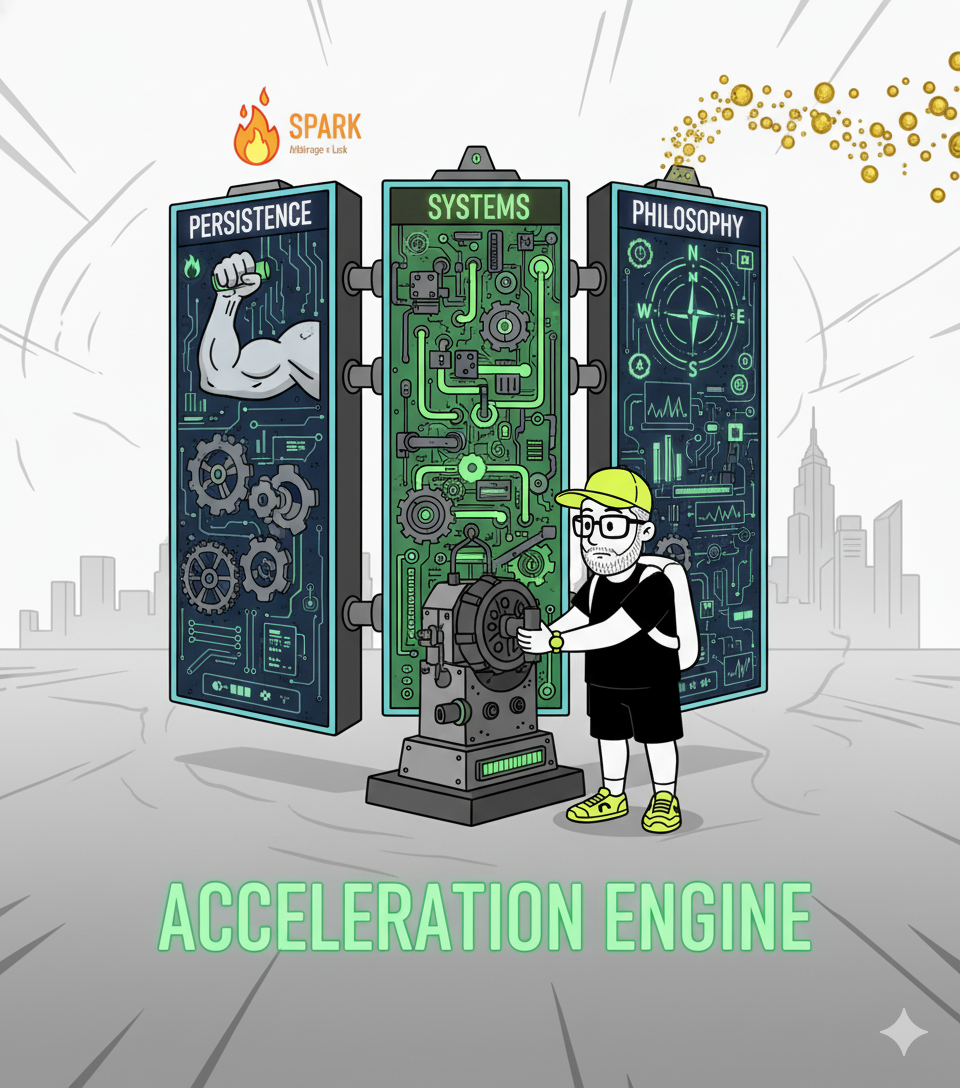Look at what Stripe is doing. Look at Robinhood. Look at the Solana Saga phone I carry in my pocket. It all points in the same direction: the human instinct is no longer just to access — it’s to own.
But ownership is mutating. For centuries it was about land, capital, property. Tomorrow, it’s about something far more ruthless: the ownership of autonomy itself. AI models. AI agents. The infrastructure that allows them to move money, make decisions, and operate without us.
This is the next battlefield of Predatorialism: who commands the machines, and who is commanded by them.
Protection in the Age of AI
AI is no longer a toy. Blockchains are no longer abstractions. The collision is inevitable: AI agents will soon pay AI agents, sign contracts, build companies, dissolve them — all without the clumsy hand of human oversight.
Some of the most powerful “companies” of the next two decades will be fully autonomous. No offices. No employees. Just code with capital.
And so the horizon narrows into a single word: protection. The protection of one’s ability to command AI resources. The protection of sovereignty in a world where automation eats labor and spits out redundancy.
The divide will not be about skill. It will not even be about education. It will be about access: who can afford to direct AI, and who cannot.
The Economics of Cheap Labor vs. AI
Today’s “automation” is little more than neo-colonial outsourcing. Millions in Madagascar and beyond grind out ten-hour days booking invoices, 1,500 at a time, for $50–$100 a month.
That is what we still call “efficiency.”
But AI is sharpening its teeth. Right now, AI accounting costs about $0.05 per invoice.
- In 2 years, that will rival cheap human labor.
- In 4 years, it will annihilate it — 100x cheaper.
Why? Because accounting doesn’t require a god-model. It requires precision repetition. Once trained, the machine never tires, never eats, never asks for dignity.
The predator here isn’t the corporation. It’s the algorithm.
The Cost of Intelligence
Today, the cost of intelligence is around $200 a month for a basic AI stack. Personally, I had month where i spent by accident sub $1,000 monthly — the equivalent of 10 human salaries in the Global South.
That is the new calculus: not what labor costs, but what intelligence costs.
And here’s the brutal truth: if you can pay for AI today, you are already winning. The digital divide is no longer about who has the internet. It’s about who owns thinking power at scale.
The Digital Divide 2.0
The 20th century’s divide was about electricity, telephones, and eventually the internet. The 21st century’s divide is about AI access.
- Those who own and direct AI will multiply wealth, productivity, and domination.
- Those who cling to human labor arbitrage will be displaced, discarded, forgotten.
Automation is not a tide to surf. It is a predator devouring every industry, every inefficiency. The weak will call it unfair. The strong will call it inevitable.
Do not misunderstand me: not everyone will be poor. Some of us will thrive — those who seize ownership, those who direct the machines, those who play the predator rather than the prey.
The rest? They’ll be left to serve, to be consumed, or to vanish.
This is the divide. This is the future. Ownership is no longer about possessions — it is about power over the autonomous.




